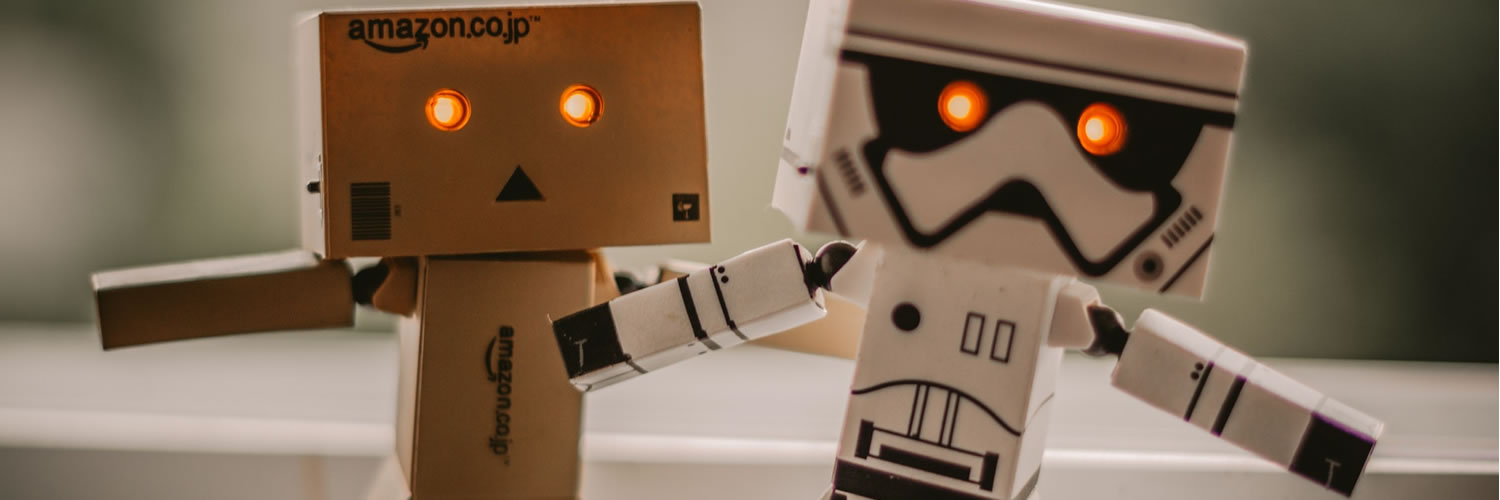
The robots are coming! Are you ready?
Here are 3 things you should know about AI to help you get ahead and keep ahead of the changes coming your way.
Wow. In the past year Artificial Intelligence has catapulted to top of mind for many clients, and for good reason—it's now evident that AI is here to stay, and that it will change the workplace. Yet in spite of this certainty, there's still a lot of noise and hype around AI which makes the technology, and its potential impacts on the future of work, hard to see. So here are 3 things you should know about AI to help you get ahead and keep ahead of the changes that are coming your way.
1. There’s no question any longer—things are going to change
It’s official—the Robots are coming, and they will change how work gets done. By how much? That depends on who you believe: Economists at the National Bureau of Economic Research have projectedthat automation will cause widespread declines in wages, consumption, and savings, and will increase income equality; The 2016 Economic Report of the President predicts that all workers earning $20 or less an hour will likely lose their jobs; Oxford University researchers warn that 47% of all U.S. jobs will be automated in two decades; Accenture says AI will transform business "in ways not seen since the Industrial Revolution."
Wow. And, whoa. One way or the other, the Robots are coming. The question is—what to do about it?
2. Flip (chart) ahead
Because we can know the rough trajectory that AI technology will take--the big AI vendors will happily share their predictions with you--we can take steps to get ahead of the changes they will bring, too. How? By anticipating the parts of the work being done at our firms that will be enhanced by (wo)man-machine partnerships, or eliminated altogether, in the future; and then crafting human capital road maps to prepare for them, today.
A simple flip-chart exercise can help. Begin by drawing a set of axes. On one axis, determine if a role involves tasks that are highly repeatable and predictable, or not; on the other, if the need for human contact is high (e.g. where a customer, colleague or consumer wants a human being involved in the task), or not. (See image below) Then let the sticky notes fly. You can see where this is going--The roles least likely to be automated will be those that land in the quadrant for highly unpredictable and requiring high need for human interaction, and vice versa.
From here you can estimate the dates to when the automation or disruption will occur, and work back from those dates to ideate human capital strategies to meet them. You can continue to advance and refine your road-maps as the technology advances. Et voila.

3. Now stay ahead
The exercise above is a start, but only a start. What does the future hold? Even the experts don’t really know. Yet. On one hand, it is not hard to imagine learning machines being able to replace any job that requires specific knowledge gained via, well, learning (ouch!). (See my earlier note on Machine Learning for details). On the other hand, AI holds the potential to create new jobs, generate new growth opportunities, and even stimulate productivity growth in slow growing economies (hurrah!). But whether you take a Utopian or a Dystopian view, the Robots are coming. Your opportunity is to get ahead, and stay ahead. So fasten your seat-belts—and get ready for adventure.
This post also appears on bts.com:
Innovation: The Robots Are Coming--Are You ready?
Are you ready to innovate?
Sign up for complimentary 30-day access to the Innovative iLead Challenge Simulation, Fostering an Innovation Culture. See if you make the most effective choices to lead your team at Future Co. on an innovation journey.
 BTS, an Advantage Performance Group thought leader partner, is a global professional services firm headquartered in Stockholm, Sweden, with some 500 professionals in 33 offices located on six continents. We focus on the people side of strategy working with leaders at all levels to help them make better decisions, convert those decisions to actions and deliver results.
BTS, an Advantage Performance Group thought leader partner, is a global professional services firm headquartered in Stockholm, Sweden, with some 500 professionals in 33 offices located on six continents. We focus on the people side of strategy working with leaders at all levels to help them make better decisions, convert those decisions to actions and deliver results.
- The robots are coming! Are you ready? - July 26, 2018
- It’s not what you think: Technology’s impact on the future of work - August 22, 2017
- How to help your people succeed by first helping them fail - August 8, 2017

